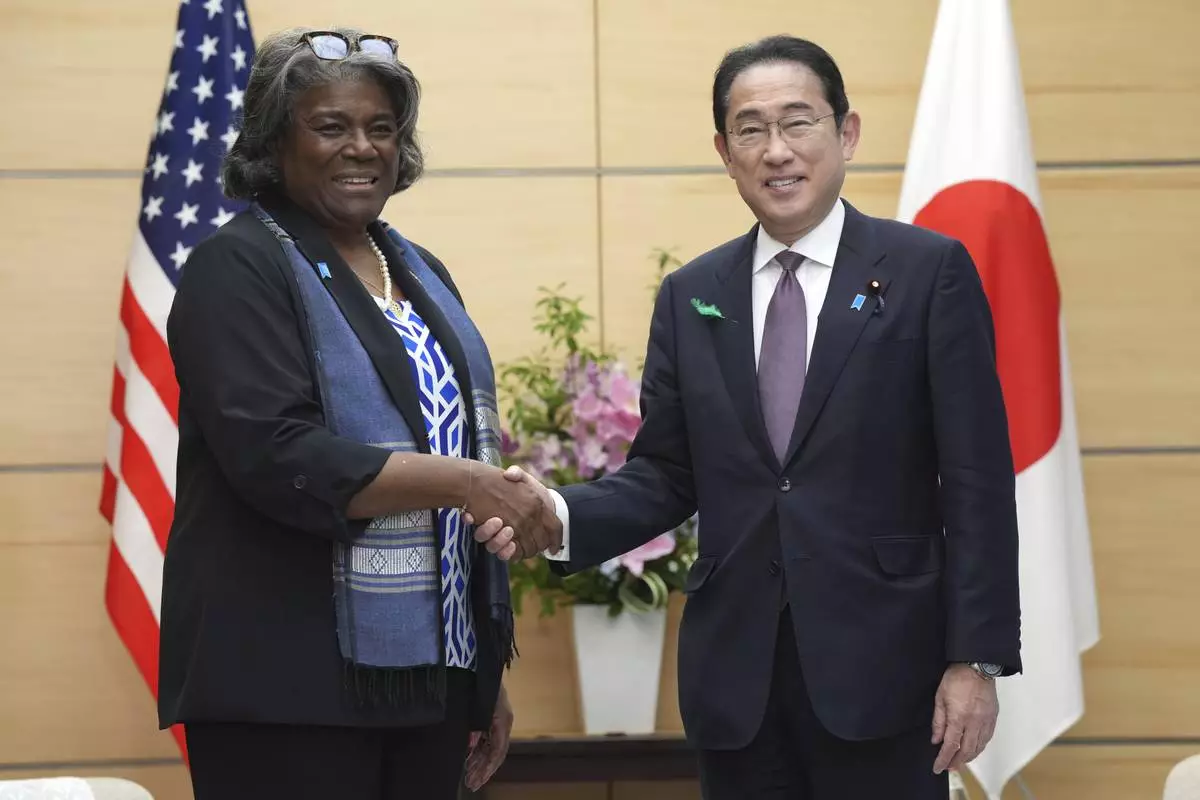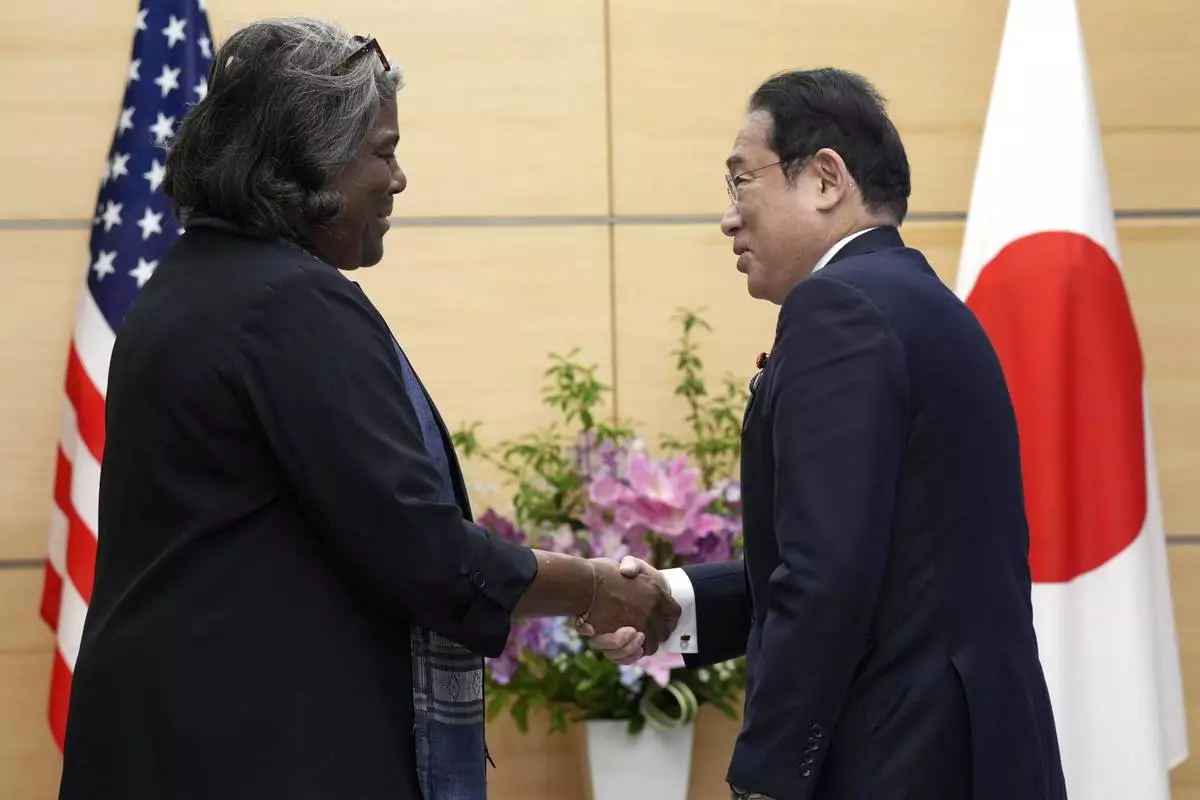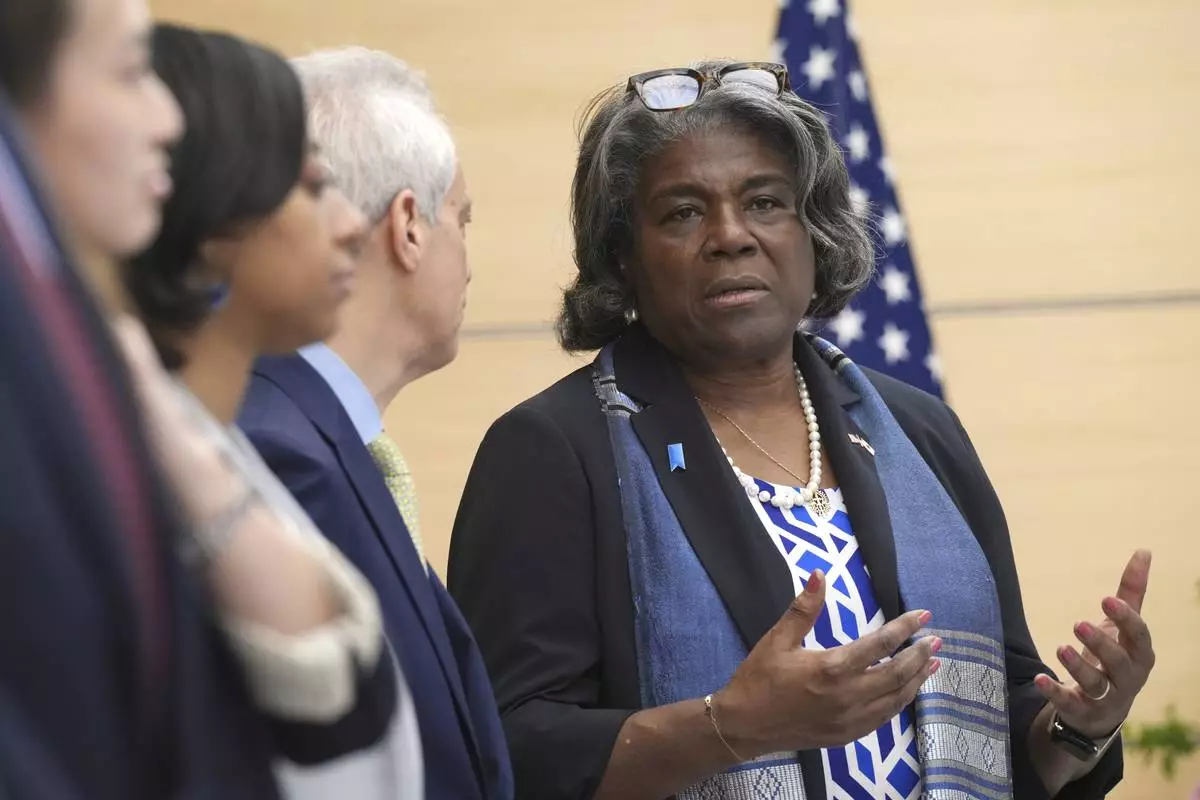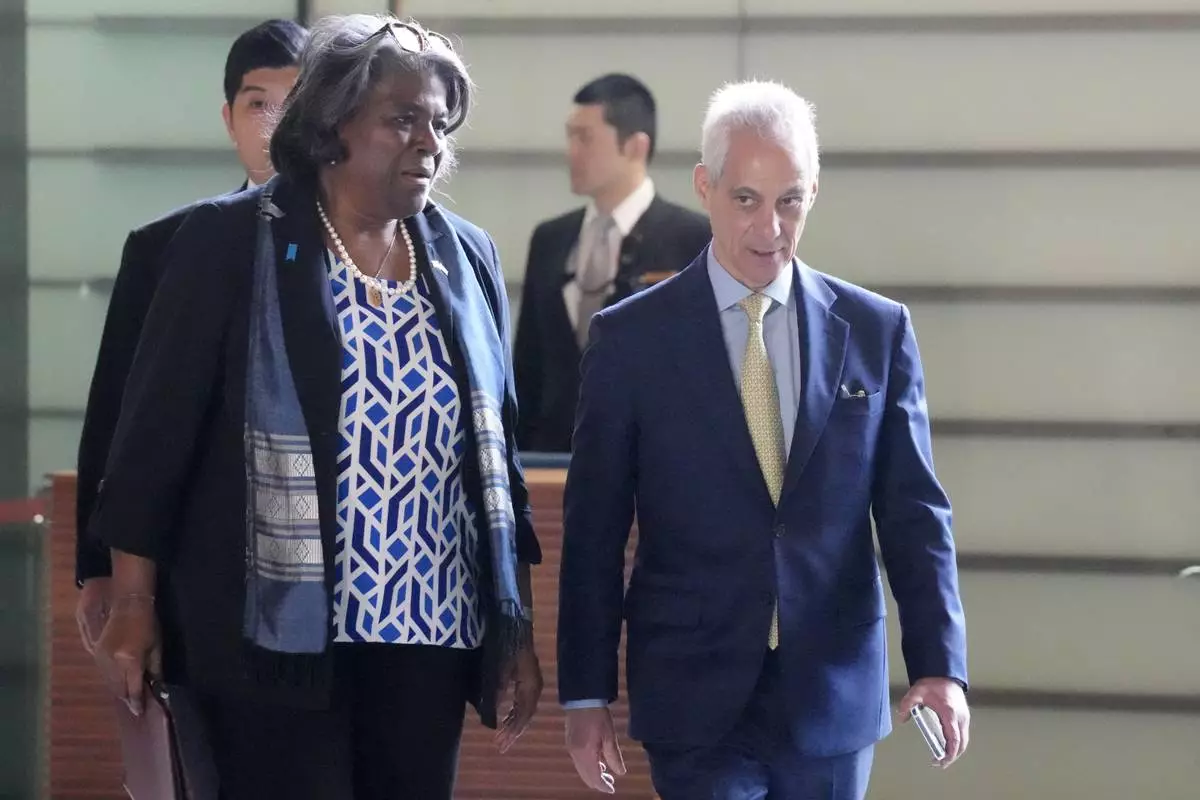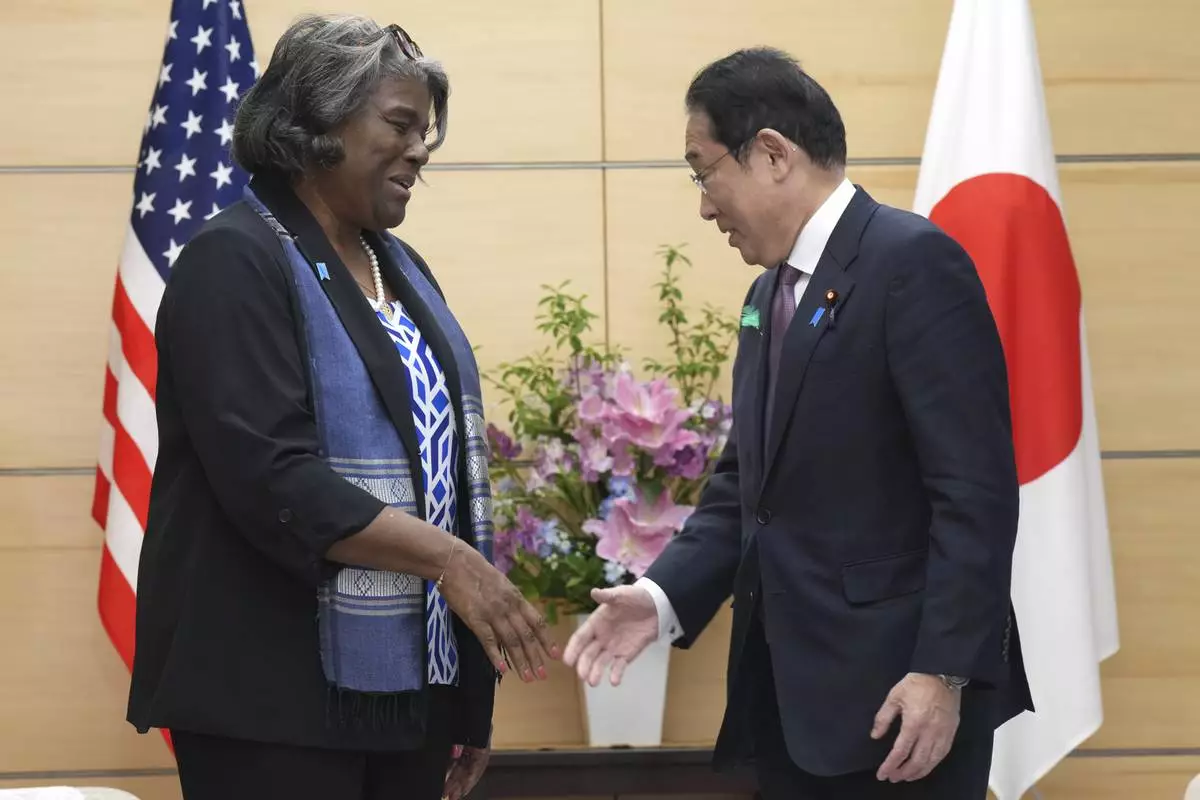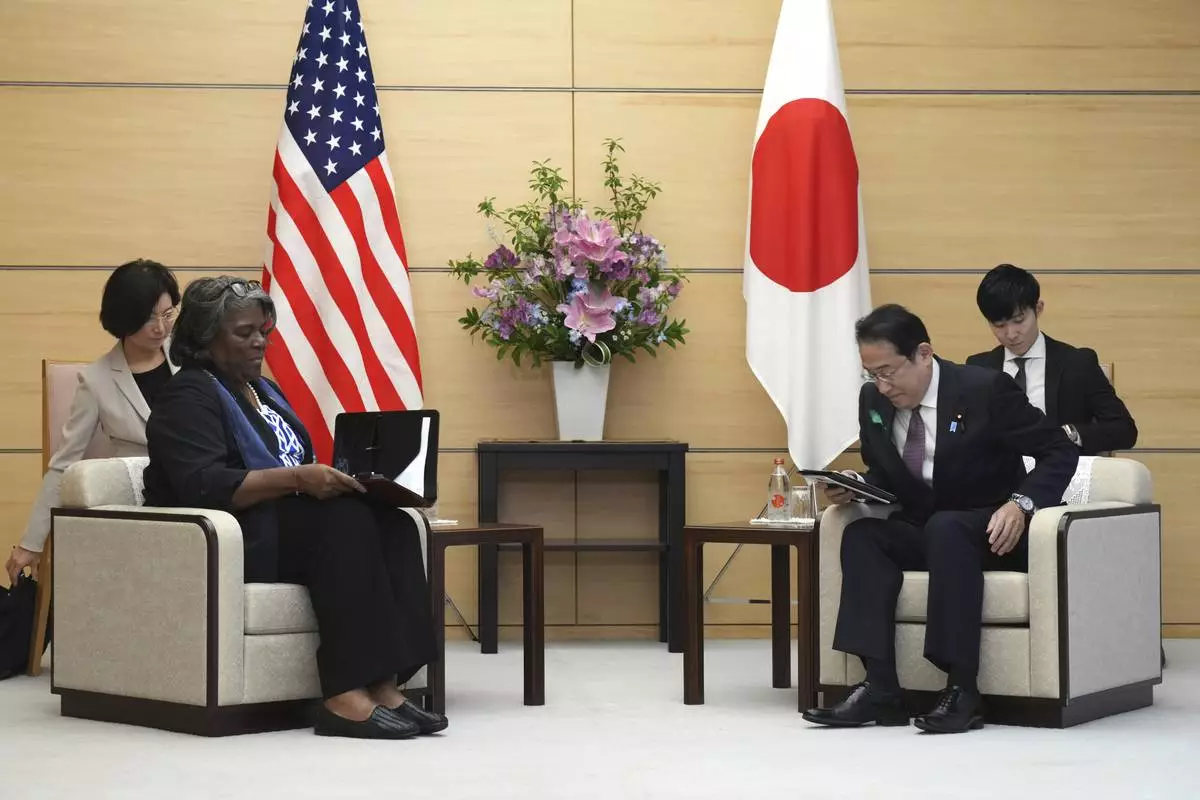Oregon Gov. Kate Brown deployed the state police Thursday to try to round up Republican lawmakers who fled the Capitol to block a vote on a landmark economy-wide climate plan that would be the second of its kind in the nation.
Minority Republicans want the cap-and-trade proposal, which is aimed at dramatically lowering the state's greenhouse gas emissions by 2050, to be sent to voters instead of being instituted by lawmakers — but negotiations with Democrats collapsed, leading to the walkout, said Kate Gillem, a spokeswoman for Senate Republicans said Thursday.
Brown had warned a day earlier that she was in "close communication with Oregon State Police" and "prepared to use all resources and tools available."
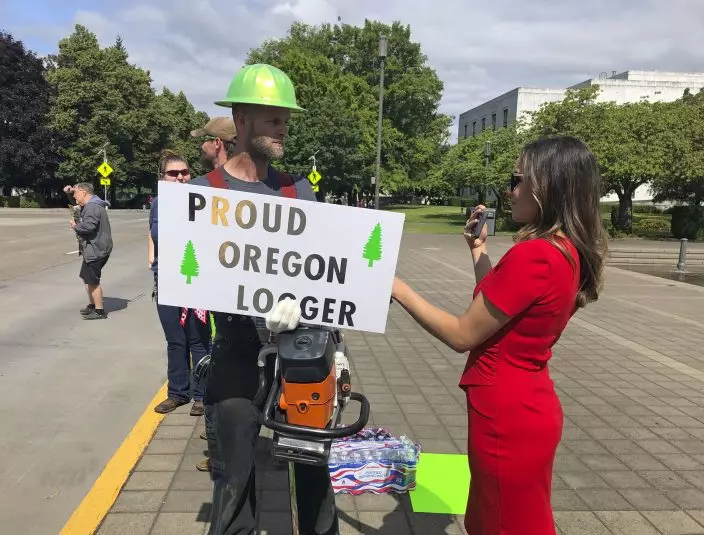
A TV reporter interviews self-employed logger Bridger Hasbrouck, of Dallas, Ore., outside the Oregon State House in Salem, Ore., on Thursday, June 20, 2019, the day the Senate is scheduled to take up a bill that would create the nation's second cap-and-trade program to curb carbon emissions. Senate Republicans, however, pledged to walk out so there wouldn't be enough lawmakers present for a vote on House Bill 2020, which is extremely unpopular among loggers, truckers and many rural voters. (AP PhotoGillian Flaccus)
Oregon State Police can force any senators they track down in Oregon into a patrol car to return them to the Capitol.
"Send bachelors and come heavily armed," Sen. Brian Boquist, a Republican from Dallas, said late Wednesday as the prospect of a walkout loomed. "I'm not going to be a political prisoner in the state of Oregon. It's just that simple."
Boquist, who is reportedly in Idaho, did not respond to e-mails on Thursday after the Senate president publicly rebuked him for the remarks.
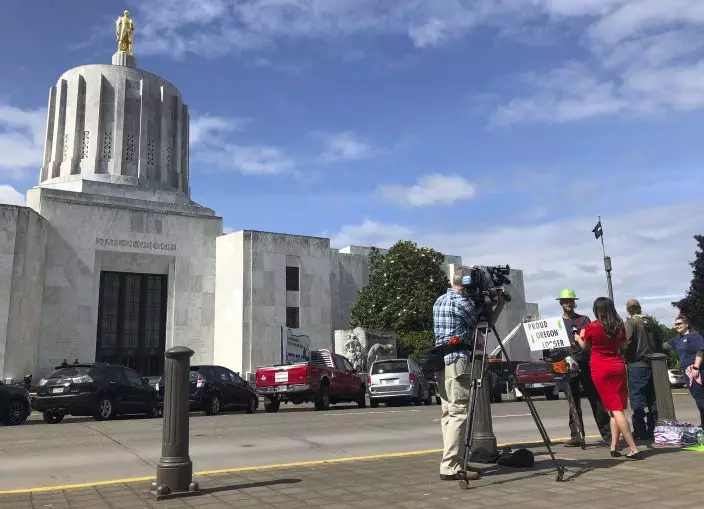
A TV reporter interviews self-employed logger Bridger Hasbrouck, of Dallas, Ore., outside the Oregon State House in Salem, Ore., on Thursday, June 20, 2019, the day the Senate is scheduled to take up a bill that would create the nation's second cap-and-trade program to curb carbon emissions. Senate Republicans, however, pledged to walk out so there wouldn't be enough lawmakers present for a vote on House Bill 2020, which is extremely unpopular among loggers, truckers and many rural voters. (AP PhotoGillian Flaccus)
Gillem confirmed on Thursday that some members left the state to avoid a vote because state police don't have jurisdiction outside Oregon.
Democrats have an 18 to 12 majority in the chamber, but need 20 members present for a quorum.
This is the second time in this legislative session that minority GOP lawmakers have used a high-stakes walkout as a way to slow the process. Democrats have a rare supermajority in the House and Senate, meaning their Republican colleagues don't have many ways to influence the debate on major policy bills that would affect their constituents.

Loggers protest outside the Oregon State House in Salem, Oregon, on June 20, 2019, the day the Senate is scheduled to take up a bill that would create the nation's second cap-and-trade program to curb carbon emissions. Senate Republicans, however, pledged to walk out so there wouldn't be enough lawmakers present for a vote on House Bill 2020, which is extremely unpopular among loggers, truckers and many rural voters. (AP PhotoGillian Flaccus)
Republicans walked out of the Senate last month to block a school funding tax package. The standoff lasted four days, until the governor struck a deal to table legislation on gun control and vaccine requirements.
The tactic is rare, but has been used throughout history, sometimes creating comical scenes. Abraham Lincoln once leapt out of a window in an attempt to deny a quorum when he was a lawmaker in Illinois. In Washington three decades ago, U.S. Sen. Bob Packwood (R-Oregon) was carried feet first into the Senate chamber after Democrats ordered the arrest of Republican senators who were denying a quorum.
In 2003, Texas Democrats fled to neighboring Oklahoma to deny a quorum, holing up in a Holiday Inn to block a GOP redistricting bill. The Republican House speaker ordered state troopers to find the Democrats and have them arrested. The Democrats returned to Texas after the bill's deadline passed and it was effectively killed.
On Thursday, Oregon's Senate president pleaded with Republicans to return.
"I beg and beseech my fellow legislators to come to the floor. I need you, the Legislature needs you, the people of Oregon need you to pass budgets to take care of our citizens," Senate President Peter Courtney said in an emotional plea on the Senate floor. "I cannot do it without you. We cannot do it without you."
The walkout brings all Senate business to a halt with just over a week left in the legislative session. Senators still need to vote on the budget as well as legislation on affordable housing, paid family medical leave and an increased tobacco tax.
But the cap-and-trade legislation remains a sticking point.
Under the proposed bill, Oregon would put an overall limit on greenhouse gas emissions and auction off pollution "allowances" for each ton of carbon industries plan to emit. The legislation would lower that cap over time to encourage businesses to move away from fossil fuels: The state would reduce emissions to 45% below 1990 levels by 2035, and 80% below 1990 levels by 2050.
Those opposed to the cap-and-trade plan say it would exacerbate a growing divide between the liberal, urban parts of the state and the rural areas, which tend to be more conservative. The plan would increase the cost of fuel, damaging small business, truckers and the logging industry, which is already in freefall due to federal environmental protections, they say.
"Protesting cap and trade by walking out today represents our constituency and exactly how we should be doing our job," said Senate Republican Leader Herman Baertschiger, Jr., of Grants Pass.
A small group of loggers gathered to protest outside the Capitol on Thursday.
Bridger Hasbrouck, a 32-year-old self-employed logger from Dallas, Oregon, said the bill if passed would be "devastating" to his business because he uses diesel fuel to power all his logging equipment.
"There's a whole lot involved but the biggest thing that's very crippling is the fact that these bills would impose regulations that would take trucks off the road that people are using to earn their living," he said. "The American dream of owning a small business, it starts to go away."
Democrats say the measure is an efficient way to lower emissions while investing in low-income and rural communities' ability to adapt to climate change. It has the support of environmental groups, farmworkers and some trade unions.
The proposal also contains a $10 million investment to protect workers adversely affected by climate change policy, as some in transportation or manufacturing sector could face layoffs. The legislation provides unemployment benefits and pathways to clean energy jobs that, under the law, must provide competitive wages and benefits.
California has had for a decade an economy-wide cap and trade policy like the one Oregon is considering. Nine northeastern states have more limited cap-and-trade programs that target only the power sector.
Brown, a Democrat, said Wednesday she's willing to extend the legislative session — due to end next week — to keep the bill alive.
Follow Sarah Zimmerman on Twitter at http://www.twitter.com/sarahzimm95 and Gillian Flaccus at http://www.twitter.com/gflaccus



